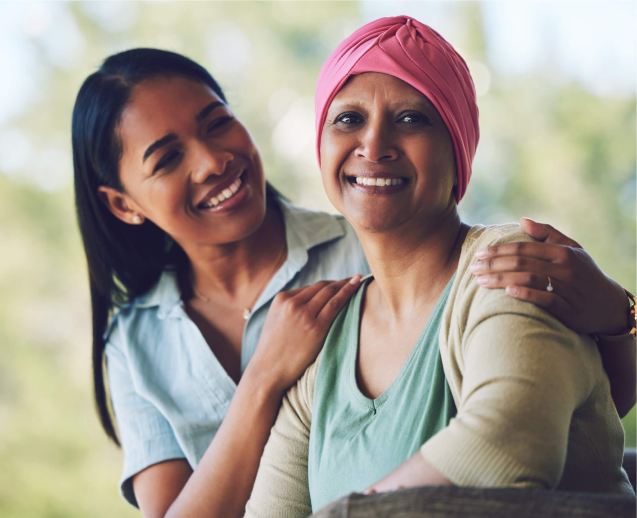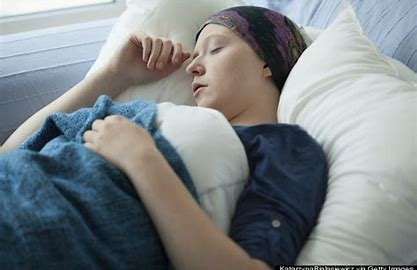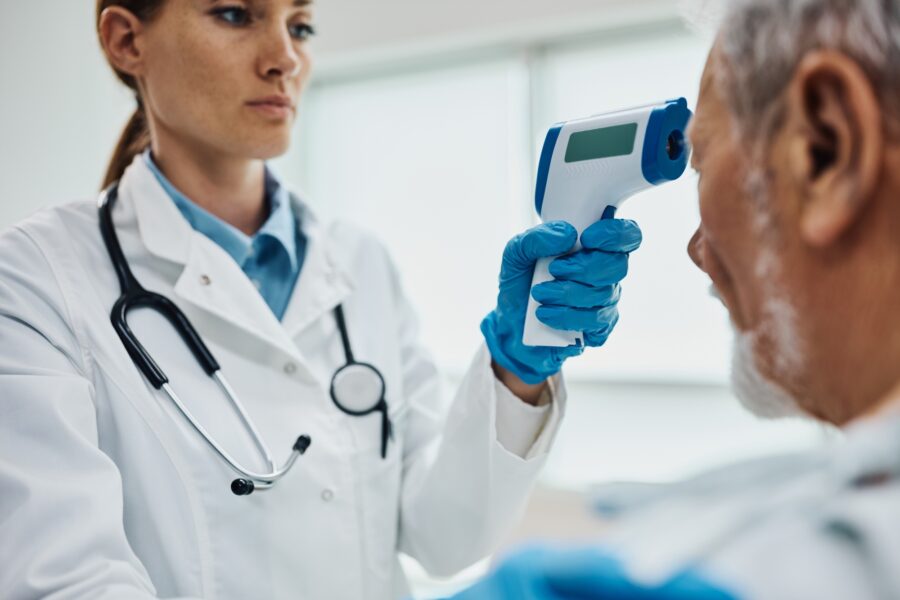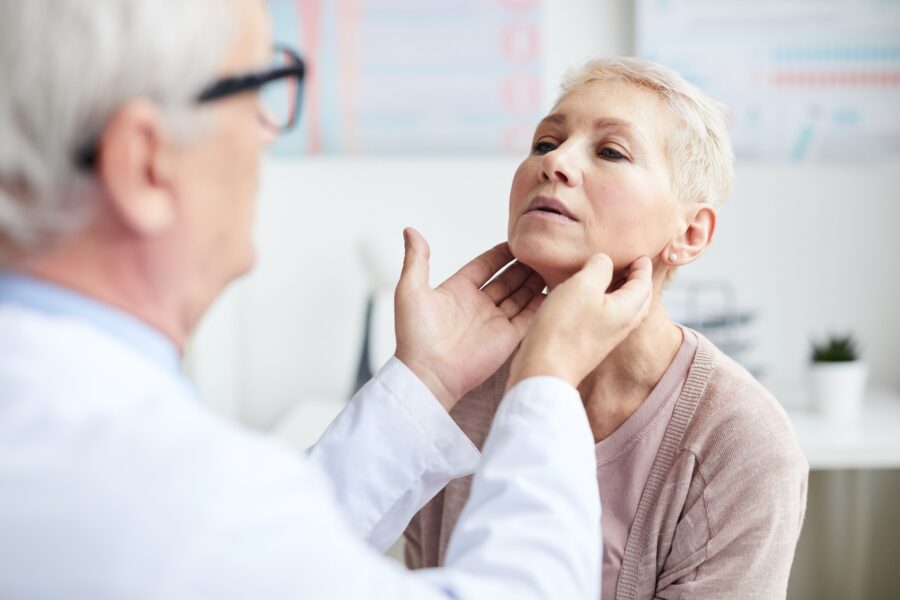Read more
Like all strong treatments, CAR T-cell therapy can cause side-effects. Some of these happen soon after treatment. Others can appear weeks or months later. This page will help you understand what to expect and what to do when side-effects happen.
You may have chemotherapy before the treatment, so you may also have side-effects of chemotherapy. To learn more about how to manage those side-effects see our side-effects page by clicking the link below.

CAR T-cells are very active in your body. They don’t just attack cancer—they also cause your immune system to wake up and react. This strong reaction is what helps destroy the lymphoma, but it’s also what causes many side-effects.
Because your immune system becomes very busy after CAR T-cell therapy, even if you feel okay when leaving hospital, side-effects can still happen later. That’s why doctors will ask you and your carer (a trusted family member, friend or community member) to stay close to the hospital for up to 8 weeks after treatment. This is to keep you safe, and make sure help is nearby if you need it.

These side-effects are often mild and can be managed at home or with simple medicines. But you should still tell your healthcare team if they happen.
Some side-effects from CAR T-cell therapy can be life-threatening. Below are the three most serious side-effects of CAR T-cell therapy. They normally happen while you are still in hospital after the treatment, but in rare cases may also happen after you leave hospital. You may have only one of these, or they may happen together.
These side-effects can be life-threatening, however they are also usually easy to treat when picked up and treated early. Most people make a full recovery.
Report any symptoms of the below side-effects to your doctor or nurse as soon as possible.

CRS happens when your immune system releases a flood of chemicals (called cytokines) in response to the CAR T-cells. This causes inflammation in your body. CRS can be mild or severe – even life-threatening. You must tell your doctor or nurses if you get any symptoms of CRS.
Usually within the first 2 days but can be a week or 2 after the infusion.
You will have blood tests once or twice a day after your CAR T-cell therapy to check for any signs or symptoms of CRS. You will also have your vital signs – such as blood pressure, pulse rate, oxygen levels and temperature done every 4 hrs to monitor for any changes.
CRS after CAR T-cell therapy will need to be treated in hospital with fluids and possibly oxygen. In some cases, you may also need special medicines such as tocilizumab or steroids. These medicines help to calm the immune system.
ICANS is a brain-related side-effect caused by inflammation from CAR T-cell activity. It affects how you think, speak, or move.
Often starts a few days after CRS begins but can also happen if you don’t have CRS. It can start up to 8 weeks after the treatment but is more common in the first few weeks.
Your nurses will ask you to write a simple sentence before you have your CAR T-cell therapy. They will then ask you several times each day after your CAR T-cell infusion to write the same sentence. They will check to see if there are any concerning changes in the way you write, which may suggest you are having ICANS symptoms.
ICANS is a medical emergency.
It is treated with steroids and other supportive care. You may need to spend some time in intensive care (ICU) for closer monitoring.
Tumour Lysis Syndrome (TLS) is a serious side-effect that can happen when a large number of lymphoma cells die very quickly. When this happens, the dead cells break open and release their contents into the blood. This can upset the balance of salts and minerals in your body and may harm your kidneys, heart, or other organs.
TLS usually happens in the first few days after CAR T-cell therapy, especially if the lymphoma is large or growing quickly.
TLS may not always cause symptoms you can feel at first, but your healthcare team will check for signs with blood tests. Symptoms to watch for include:
Because these changes can happen quickly and sometimes without warning signs, you may need:
What to do
TLS is a medical emergency.
Tell your doctor and nurses about all signs and symptoms of TLS you get, even if they seem mild.
TLS will usually happen before you leave hospital so your medical team will monitor you for signs and symptoms, but you still need to tell them about any changes you notice. They will often give you fluids and medicines before and after CAR T-cell therapy to help prevent it.
If you are at high risk of TLS, you may receive extra treatment—like medications that help your body remove the waste products from dying cancer cells more safely.
ICANS is a medical emergency.
It is treated with steroids and other supportive care. You may need to spend some time in intensive care (ICU) for closer monitoring.
Some side-effects may happen weeks or even months after CAR T-cell therapy. These can often be managed at home, but you should tell your care team about any new or ongoing problems.
Why?
CAR T-cell therapy can lower your immune system for a long time, even after you feel better.
What to do?
Wash your hands often. Avoid sick people. Stay up to date with vaccines (as advised). Call your doctor if you have a cough, fever, sore throat or feel unwell in anyway.
Why?
CAR T-cell therapy, or the chemo you have before it can affect your bone marrow, which makes blood cells.
What to do?
You may need regular blood tests. If your red cells, white cells, or platelets are low, you may feel tired, get infections or bruise easily. Your doctor may give you blood or platelet transfusions or growth factors.
What happens
Some people feel sad, anxious, or have trouble thinking clearly for a while.
What to do
This is common and often gets better with time. Talk to your team if it lasts or gets worse. You may be referred to a psychologist, counsellor or occupational therapist.
Always mention this to you doctor or nurse so they can assess you and make sure it is not ICANS.
What happens
CAR T-cell therapy can affect hormone levels, especially in younger people.
What to do
You may need hormone tests. In some cases, hormone replacement is needed. Ask your doctor if this might apply to you.
Call your doctor or go to the hospital if you or the person you care for has any of these symptoms.
It’s always better to call early. Your healthcare team is there to support you through every stage of CAR T-cell therapy.
Side-effects can feel scary, but you are not alone. Your care team is trained to spot and treat problems quickly. By knowing what to expect and when to ask for help, you can stay safe and give CAR T-cell therapy the best chance to work.
If you have any questions, talk to your doctor or nurse. Consider keeping a symptom diary. Writing down when symptoms happen, how they feel and how long they last can also help you track how you feel, notice changes and share that information with your team.

Please note:
Lymphoma Australia staff are only able to reply to emails sent in English language.
You need healthy T-cells to make CAR T-cells. For this reason, CAR T-cell therapy cannot be used if you have a T-cell lymphoma – yet.
For more information on CAR T-cells and T-cell lymphoma click here.
Special Note: Although your T-cells are removed from your blood for CAR T-cell therapy, most of our T-cells live outside of our blood – in our lymph nodes, thymus, spleen and other organs.